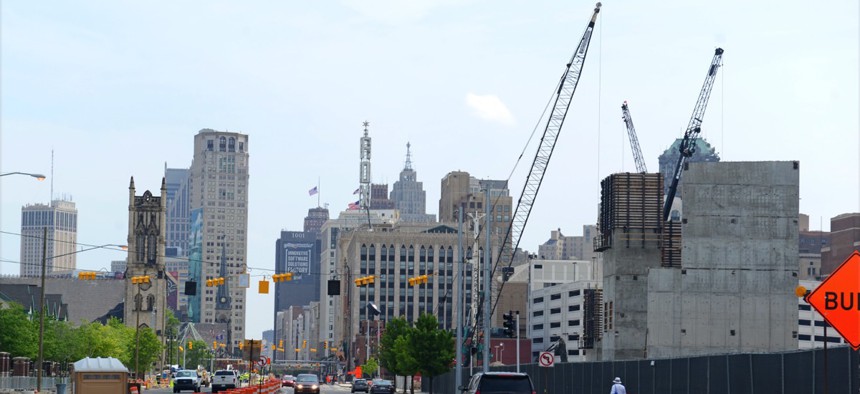A Smart Cities Challenge for Next-Generation Innovators

Detroit, Michigan

Connecting state and local government leaders
The Rockefeller Foundation has given out grants before, so this time it’s looking to mentor startups through Unreasonable Institute as they tackle entrenched urban problems.
Ten startups fighting urban poverty or otherwise assisting vulnerable communities will receive $100,000 each and participate in a nine-month development phase, as part of the Future Cities Accelerator announced Friday at the Millennial Tech & Change Summit in San Francisco.
During that time, the competition’s winners will see investment and technical support to scale their innovations tackling issues like inequality, education, crime, infrastructure, pollution, and climate change.
Partners The Rockefeller Foundation and Unreasonable Institute had problems like flooding in New Orleans, New York and Houston, as well as job loss in Detroit, in mind while developing the challenge.
“We’re at a crossroads where education, social inequality, crime, just about everything going on in our cities is sort of at a tipping point,” said Josh Murphy, senior associate at The Rockefeller Foundation, in an interview. “About 70 percent of the workforce will be millennials in the next 10 years, and cities are where all the innovation is happening, so starting to invest in what next-generation innovators are doing now makes a lot of sense.”
But New York City-based Rockefeller didn’t simply want to hand out grants, seeking instead to fund and work with a handful of startups long term in grassroots fashion.
Boulder, Colorado-based Unreasonable is the perfect collaborator in that respect, its wheelhouse being short-term training of entrepreneurs addressing poverty, education and water issues. Unreasonable was a 2011 Rockefeller grantee and has 36 programs in 26 locations connecting startups with backers and mentors at several-day- or week-long boot camps.
Tom Chi, formerly with Google X and cofounder of Google Glass; Jamie Van Leeuwen, senior advisor to Colorado’s governor; and Dan Rosen, Mosaic founder and president, will serve as mentors throughout a five-day accelerator.
“For an early-stage organization on the cusp of something brilliant, this is such an incredible offering,” said Teju Ravilochan, cofounder and CEO of Unreasonable. “We’re really excited about learning how we mobilize people around a certain issue.”
This marks the latest in a series of urban challenges for Rockefeller, which recently announced its 100th “resilient city” and can equip Unreasonable to run a longer-than-usual program.
Proposals that stand to have a deep and lasting impact and improve quality of life, providing someone with a permanent job or home for instance, will stand out—especially if they can scale globally, Ravilochan said. They’re also looking for cohesive teams that bring expertise in the problem area they’re trying to remedy without conflict.
Established organizations should think twice about applying because Future Cities Accelerator wants to help organizations that need it. The program is on always on the lookout for new mentors and funders.
The application deadline is September 25, after which Unreasonable will review proposals over multiple rounds. WInners will be announced January 4, 2017.
“I can’t imagine a better way to take attention on an issue like poverty and turn it into meaningful progress, rather than frustration and hopelessness,” Ravilochan said.
Dave Nyczepir is a News Editor at Government Executive’s Route Fifty and is based in Washington D.C.

NEXT STORY: DHS accelerator expands to bring wearable tech for responders





